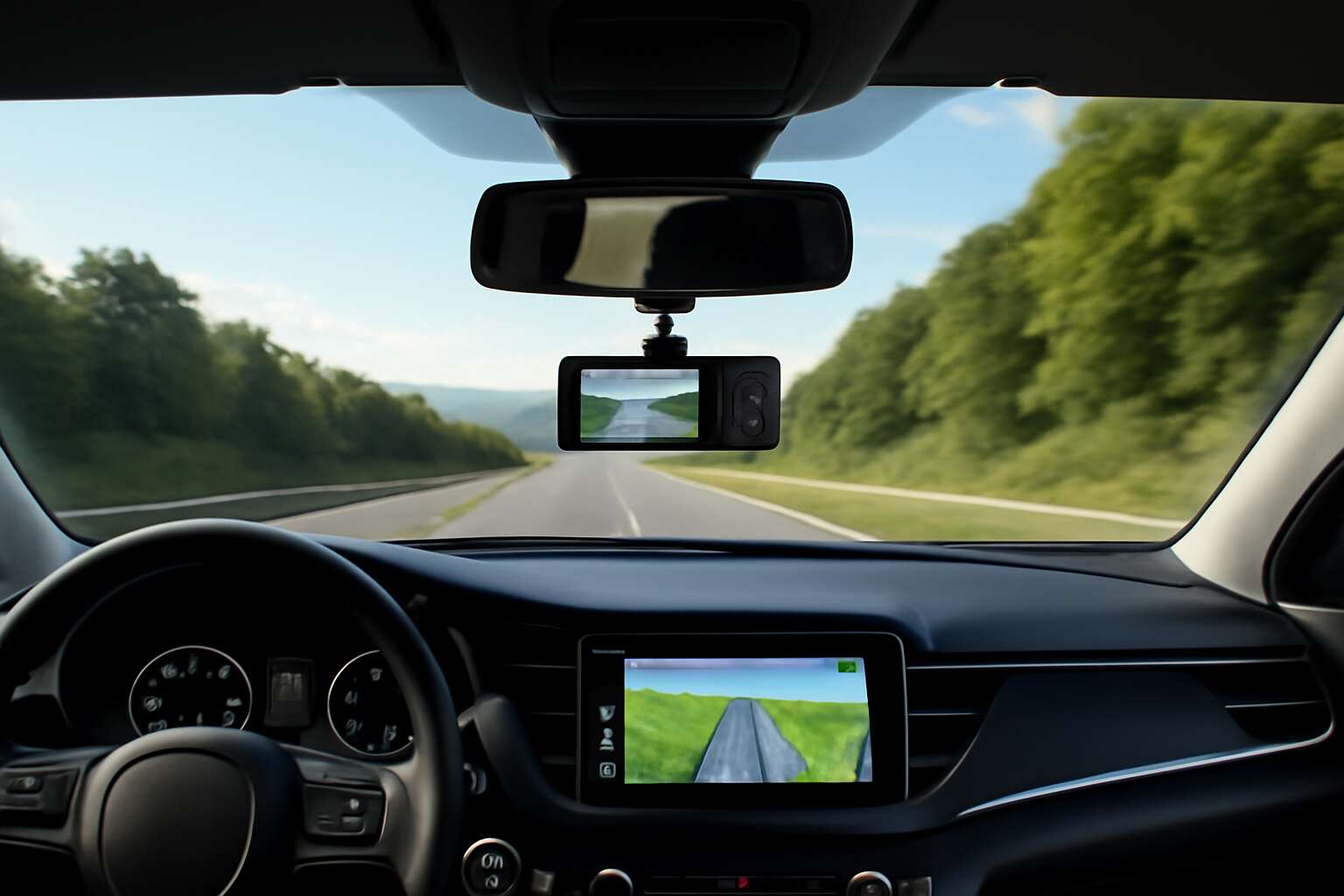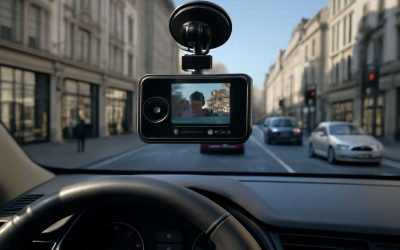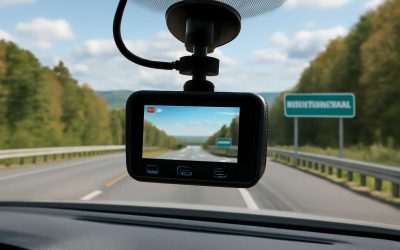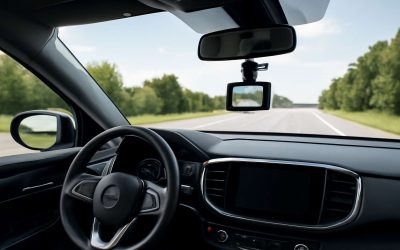Understanding Dash Camera Laws in the United States
Definition of Dash Cameras – What are dash cameras and their common uses?
Dash cameras have become a common fixture on roads across the United States, capturing everything from minor fender-benders to major accidents. But with their rising popularity, a question often arises: are dash cameras legal in all states? Understanding the legal landscape is crucial, especially as regulations can vary significantly from one jurisdiction to another.
At their core, dash cameras are compact devices mounted inside vehicles to record video footage of the road ahead or inside the vehicle. They serve multiple purposes, including providing evidence in legal disputes, enhancing driver safety, and deterring reckless driving behaviour. Their common uses extend from everyday commuting to commercial fleet management, making them an essential tool for many drivers.
While the technology itself is straightforward, the legality of dash cameras hinges on specific state laws and privacy considerations. Some states have restrictions on recording audio without consent, which can impact whether dash cameras with audio recording are permitted. It’s important to note that in most places, using a dash camera is lawful as long as it does not infringe on others’ privacy rights. So, to answer the initial question—are dash cameras legal in all states? The answer is complex, but generally, yes, with some notable exceptions.
Why Legal Status Varies by State – Factors influencing the legality of dash cameras
In the shadowed corridors of legality, the question lingers—are dash cameras legal in all states? The truth is, the legal landscape is a labyrinth, shifting and twisting with the jurisdictional whims of each state. While some embrace the silent witness of a dash camera, others cast a wary eye, wary of privacy infringements and audio recording restrictions. The disparity is stark, a reflection of societal values and legal philosophies that vary as much as night from day.
Factors influencing the legality of dash cameras include local privacy laws and the nuances surrounding audio recording. For instance, in certain states, capturing conversations without explicit consent could turn a guardian device into a tool of intrusion. To navigate this shadowy terrain, it’s essential to understand the specific laws that govern your region.
- States with strict privacy statutes may prohibit audio recording without all parties’ consent, impacting dash cameras with integrated microphones.
- Other jurisdictions allow the use of dash cameras freely, provided they do not violate any other statutes or infringe on personal privacy.
Ultimately, the question—are dash cameras legal in all states—resides in a delicate balance, a dance between protection and privacy. The legal status is not universal, but rather a patchwork of regulations that demand vigilant awareness from every driver venturing into this dark, technological realm.
Key Legal Frameworks Impacting Dash Camera Usage – Overview of federal vs. state laws
The legal landscape surrounding dash cameras in the United States is as complex as human nature itself. At its core, understanding whether dash cameras are legal in all states requires a nuanced appreciation of the existing legal frameworks. While federal laws establish broad guidelines, it is the discrete, often conflicting, state statutes that truly dictate the boundaries of usage. This patchwork of regulation reflects differing societal values—privacy, security, and personal autonomy—all vying for precedence.
Federal laws generally do not explicitly prohibit dash camera use, but they do set overarching principles, especially concerning video and audio recordings. Conversely, state laws can impose restrictions, particularly when it comes to audio recordings, which are often subject to consent requirements. For example, some states adhere to one-party consent, allowing recordings without all parties’ knowledge, while others require every participant to agree. This divergence can turn a seemingly innocuous device into a legal minefield.
- States with strict privacy laws may prohibit audio recording without explicit consent, impacting the legality of dash cameras with microphones.
- States with more permissive legislation may allow dash camera use freely, provided they do not infringe on other statutes or personal privacy rights.
In essence, the question of whether dash cameras are legal in all states hinges upon this delicate interplay. It underscores the importance of understanding the specific legal nuances in each jurisdiction—an unending dance between protection and privacy, legality and morality, technology and human dignity.
State-by-State Overview of Dash Camera Regulations
States Where Dash Cameras are Fully Legal – Examples and specific legal conditions
In the labyrinthine mosaic of American legislation, the question remains: are dash cameras legal in all states? The answer is far from simple, as each jurisdiction dances to its own legal tune, dictated by local nuances and cultural mores. Some states embrace the modern marvel of dash cameras with open arms, recognising their value in safeguarding drivers and collecting vital evidence. In California, for example, the law permits the use of dash cameras as long as they do not obstruct the driver’s view, a testament to the state’s progressive stance on technological integration. Conversely, states like Nevada adopt a more cautious approach, emphasising the importance of privacy and consent.
The landscape is further shaped by specific legal conditions that vary from one state to another. For instance, in New York, recording audio without the consent of all parties involved can breach privacy laws, making the use of dash cameras more restrictive. Meanwhile, in Texas, the focus rests on the purpose of the recording, with the law permitting dash cameras primarily for safety and security.
To clarify, here are some states where dash cameras are fully legal, provided they adhere to certain conditions:
- California — must not obstruct driver’s view
- Florida — permissible for personal and commercial use
- Ohio — legal with respect to privacy laws
Yet, the question lingers: are dash cameras legal in all states? The truth is, not quite. While many jurisdictions continue to evolve and adapt, understanding the specific legal landscape of each state remains paramount for any driver wishing to harness the power of this technology without crossing legal boundaries.
States with Restrictions on Dash Cameras – Types of restrictions and prohibited features
In the sprawling mosaic of American legislation, the question of whether dash cameras are legal in all states remains a complex tapestry woven with legal intricacies and cultural mores. While some jurisdictions embrace this modern technology with open arms, others impose restrictions that challenge the unrestricted use of dash cameras. The spectrum of restrictions varies widely, often dictated by concerns over privacy, consent, and the purpose of recording.
States with notable restrictions tend to focus on the types of footage captured and how it is utilised. For example, in certain areas, recording audio without the explicit consent of all parties involved is prohibited, reflecting a deep-rooted respect for privacy rights. Conversely, some states impose limitations on the placement of dash cameras—such as prohibiting them from obstructing the driver’s view—ensuring safety remains paramount.
To illustrate, here are some common restrictions encountered across various states:
- Prohibition of audio recording without all-party consent
- Restrictions on mounting locations that obstruct visibility
- Limitations on the use of dash camera footage for commercial purposes
Understanding these varying legal boundaries is essential for any driver considering the use of dash cameras. The question of are dash cameras legal in all states? The answer, regrettably, remains elusive. Each jurisdiction’s unique legal landscape demands careful navigation, ensuring that the pursuit of safety and evidence collection does not infringe upon the rights protected by law. Navigating this labyrinthine legal terrain requires both vigilance and respect for the nuanced restrictions that define each state’s stance on dash camera usage.
States with Ambiguous or No Clear Laws – Challenges and tips for legal compliance
The labyrinth of legal statutes surrounding dash cameras often resembles an ancient manuscript, filled with cryptic symbols and hidden meanings. In some jurisdictions, the scrolls are clear and straightforward, yet in others, they remain cloaked in ambiguity. A striking 30% of drivers find themselves navigating a murky legal landscape when pondering the question: are dash cameras legal in all states?
In states where laws are not explicitly carved into stone, ambiguity reigns supreme. Such vagueness can lead to inadvertent violations or inadvertent breaches of privacy, especially when recording audio or mounting the device in a manner that might obscure the driver’s vision. Sometimes, the statutes are silent, leaving drivers to interpret whether their dash cameras fall under legal scrutiny or fall into a grey area.
This shadowy domain demands a careful, observant approach, as the lack of clear guidance can turn a simple recording device into a legal quagmire. For those venturing into this realm, understanding local nuances becomes paramount. After all, in the quest to unveil the truth on the road, one must also respect the unseen borders of legality that govern each unique state.
Legal Considerations When Using Dash Cameras
Privacy Laws and Recording Audio – Understanding wiretapping and consent laws
Amidst the shimmering allure of modern technology, the question persists: are dash cameras legal in all states? As the United States weaves a complex tapestry of regulations, understanding the legal considerations surrounding dash cameras becomes essential for any vigilant motorist. Privacy laws and recording audio sit at the heart of this debate, casting shadows and light in equal measure.
In many jurisdictions, recording video in public spaces generally remains lawful, yet capturing audio introduces a labyrinth of wiretapping and consent laws. Some states require all parties to consent to audio recording, while others permit single-party consent. This disparity can turn a straightforward act into a legal minefield.
To navigate this landscape, it’s crucial to grasp the nuances of privacy laws—particularly how they intersect with dash camera use. For example, in states with strict wiretapping statutes, recording audio without explicit consent could lead to legal repercussions. In contrast, recording video alone often remains permissible, provided it does not infringe upon reasonable expectations of privacy. Understanding these distinctions ensures that your dash camera practices stay within the bounds of the law, regardless of whether you’re in a state where are dash cameras legal in all states or not.
Mounting and Placement Regulations – Where and how to install dash cameras legally
Legal intricacies surrounding dash cameras are often as complex as the bustling intersections they monitor. When considering where and how to install these devices, the question of legality becomes paramount. Mounting a dash camera in a manner that obstructs the driver’s view can inadvertently breach laws designed to promote road safety. Consequently, understanding the nuanced regulations governing placement is essential to avoid unintentional violations.
In many states, the law permits the installation of dash cameras provided they do not interfere with the driver’s visibility or distract from safe driving. A common guideline is to position the device behind the rearview mirror, ensuring it captures the road without compromising the field of vision. Some jurisdictions explicitly prohibit cameras mounted on the windshield in a way that blocks the driver’s line of sight, emphasizing that safety remains the priority.
- Ensure the dash camera is affixed to a part of the windshield with an unobstructed view of the road.
- Avoid placing the device where it could distract or be a hazard during a collision.
- Verify local regulations to confirm that the mounting method aligns with state-specific restrictions.
While the question remains: are dash cameras legal in all states? The answer hinges on adherence to these mounting and placement regulations, which vary from one jurisdiction to another, reflecting the intricate mosaic of traffic laws across the country. Navigating this labyrinth demands not only awareness but also a cautious approach to device installation, ensuring compliance while harnessing the protective potential of modern technology.
Use of Footage in Legal Proceedings – Admissibility and privacy issues
The modern road is a stage where every driver plays a part in a complex legal drama, and dash cameras have become an essential prop in documenting life’s unexpected moments. But amid this technological revolution, a pressing question persists: are dash cameras legal in all states? The answer is nuanced, woven through the delicate fabric of privacy laws and legal admissibility.
When capturing footage, users must be mindful of privacy issues, especially concerning audio recording. Recording conversations without consent can violate wiretapping laws, which vary from state to state. For instance, some jurisdictions require all parties’ consent, while others only one. This variation affects whether dash camera footage can be presented as evidence in court.
Legally, dash camera footage is often admissible in legal proceedings if it complies with local laws and privacy regulations. However, the context in which the footage is obtained matters immensely. Unlawful recordings—such as those captured in private moments or through surreptitious means—may be excluded from evidence and could even lead to legal repercussions for the owner. Vigilance and awareness of state-specific privacy statutes are essential for ensuring that the use of dash camera footage remains within the bounds of the law.
Best Practices for Legal Dash Camera Use
Clear Signage and Notification – Informing others about recording
While dash cameras have become an indispensable tool for drivers seeking to protect themselves on the road, the question remains—are dash cameras legal in all states? The answer isn’t as straightforward as one might hope. In some jurisdictions, the use of dash cameras is met with strict regulations, often tied to privacy and consent laws. To avoid unwelcome surprises, it’s essential to adhere to best practices for legal dash camera use, especially when it comes to clear signage and notification.
Properly informing others that recording is in progress not only fosters transparency but also helps you stay compliant with privacy statutes. Simple signage—such as a discreet sticker on your windshield—can serve as an effective notification. In states where recording audio is involved, the requirement to obtain consent becomes even more vital. Remember, ignorance of local laws isn’t a defence—staying informed ensures your dash camera footage remains admissible and your activities within legal bounds.
When installing a dash camera, consider the placement carefully—mounting it in a way that captures essential footage without obstructing driver visibility is crucial. Additionally, understanding the nuances of state-specific restrictions can prevent inadvertent violations. Ultimately, while dash cameras are legal in many regions, always verify the particular laws governing your location to navigate the fine line between protection and privacy infringement effectively.
Securing and Managing Footage – Data protection and privacy tips
In the labyrinthine landscape of modern motoring, dash cameras have become a beacon of clarity and protection for countless drivers. Yet, the question persists—are dash cameras legal in all states? The answer is woven with intricacies and nuances, as each jurisdiction dances to its own legal tune. While some regions embrace these devices with open arms, others impose restrictions rooted in privacy statutes and consent laws. Navigating this terrain requires a keen understanding of the local legal fabric, ensuring that your quest for safety doesn’t inadvertently lead you into forbidden territory.
To wield your dash camera wisely, securing and managing footage with respect for privacy is paramount. Use encryption tools or password protections to safeguard your recordings from unauthorised access. If your dash camera captures audio, be especially mindful of wiretapping laws—many states demand explicit consent before recording conversations. Incorporating simple yet effective practices, such as storing footage on secure drives or cloud services with robust security protocols, can help prevent data breaches and legal entanglements. Remember, in the grand saga of road safety, respecting the boundaries of legality is as vital as the device itself.
Regularly Updating Knowledge of State Laws – Staying compliant with evolving legislation
In the intricate dance of modern driving, staying legally compliant with dash camera use requires more than just installation — it’s about continuous awareness. Laws governing dash cameras are not static; they evolve as technology advances and privacy concerns deepen. To ensure your dash camera remains a tool for safety rather than a source of legal trouble, it’s essential to stay informed about the latest legislative developments. Regularly updating your knowledge of state laws helps you avoid inadvertent violations, especially since some jurisdictions impose strict restrictions on recording audio or mounting devices in certain locations.
Engaging with reputable legal resources, industry updates, or local authorities can keep you ahead of the curve. For example, some states now require clear signage indicating recording, while others have specific rules about where and how dash cameras can be mounted. Remember, what was legal yesterday might have shifted overnight. The answer to “are dash cameras legal in all states?” is nuanced — it’s a mosaic of regulations that demand diligent attention. Staying well-informed ensures your dash camera is a safeguard, not a legal liability, in your journey towards safer roads and peace of mind.
Future Trends in Dash Camera Legislation
Emerging Regulations and Laws – Upcoming legal shifts to watch for
As technology continues to weave itself into the fabric of daily life, the future of dash camera legislation promises both clarity and complexity. Emerging regulations are likely to address the nuances of privacy, data security, and the permissible scope of recording. States are beginning to craft laws that strike a delicate balance between individual rights and technological innovation, often influenced by evolving court rulings and public sentiment.
In some jurisdictions, upcoming legal shifts could introduce stricter guidelines on audio recording, or even mandate specific mounting standards to ensure unobstructed visibility. As the landscape shifts, expect to see a clearer distinction between legal uses and potential privacy infringements.
- States may implement comprehensive legislation explicitly clarifying whether dash cameras are legal in all states.
- New laws could regulate the retention and use of footage in legal proceedings.
- Legislators might introduce mandates for notifying individuals of ongoing recordings, aligning with privacy expectations.
Staying ahead of these developments is crucial for anyone interested in the legality of dash cameras. The legal terrain is set for transformation, with future regulations shaping the way we capture and utilise footage on the road.
Impact of Technology Advancements – How new features influence legality
Rapid advances in technology are reshaping the landscape of dash camera legislation. As new features emerge, the question of are dash cameras legal in all states becomes more complex. Cutting-edge models now include audio recording, GPS tracking, and even facial recognition, raising fresh legal considerations. These innovations influence how laws are drafted and interpreted, often prompting regulators to revisit existing legislation.
Future trends suggest a move towards more granular regulations that specify permissible features and installation standards. For example, some states are considering laws that require clear signage when recording or restrict audio capture without explicit consent. These developments could result in stricter guidelines, ensuring that privacy rights are preserved while allowing technological progress to flourish.
- Enhanced privacy protections
- Mandated notification of recordings
- Specific mounting standards to prevent obstruction
As the legal environment evolves, understanding how new features impact the legality of dash cameras becomes essential. The question of are dash cameras legal in all states may soon require more nuanced answers, reflecting the rapid pace of innovation and societal expectations. Staying informed is key as legislation adapts to these technological shifts.
Advocacy and Consumer Rights – Efforts to standardize laws nationwide
The legal landscape surrounding dash cameras is evolving faster than a GPS signal in the middle of nowhere. As technology pushes boundaries—think audio recording, GPS tracking, and facial recognition—regulators are scrambling to keep up. The question, “are dash cameras legal in all states?” becomes more complex with each new feature. Future legislation may introduce nuanced regulations, such as mandated signage or restrictions on audio capture without explicit consent, reflecting society’s growing concern for privacy.
Advocacy groups are increasingly pushing for standardised laws across state lines, aiming for a uniform approach that balances technological innovation with personal privacy. Some propose a set of core principles, including:
- Enhanced privacy protections
- Clear notification requirements
- Standardised mounting standards to prevent obstruction
While complete nationwide uniformity remains a distant dream, these efforts signal a future where the legality of dash cameras might be less of a patchwork quilt and more of a well-tailored suit. As legislation continues to adapt, understanding how new features impact the legal status of dash cameras is crucial. The ongoing debate underscores that the answer to “are dash cameras legal in all states?” is likely to grow more sophisticated, requiring consumers and regulators alike to stay alert and informed.




0 Comments